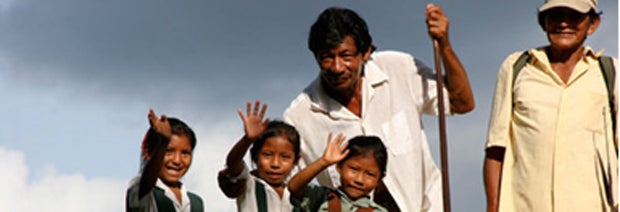In the rivers and ponds of Guyana’s unspoiled rain forest, there is a place where sport fishing can help preserve the country’s natural resources and culture by supporting its indigenous peoples in a responsible way.
This Sports Fishing Cluster project was launched by Compete Caribbean this month to support a cluster of eco-lodges in the North Rupununi of Guyana to develop and promote their tourism offerings over the next two years.
The Rupununi natives have been consciously developing themselves over the years into an innovative and eco-friendly experiential tourism model that provides opportunities for men and women from 16 Amerindian communities. The names of the eco-lodges are Rewa, Surama, and Karanambu.
One of the challenges they have been seeking to address is the lack of opportunities for viable and legal livelihoods, particularly for men, within the interior of Guyana. The area has seen a trend of men migrating out of their communities, whether temporarily or permanently, which is highly disruptive to their families and communities. This cluster created the concept of a single Rupununi experience for travelers that would be underpinned by the specialty offerings of the lodges, and in that way offer increased opportunities for men to earn income and stay at home.
 Photos courtesy of Costa Del Mar and Lesley De Souza.
Photos courtesy of Costa Del Mar and Lesley De Souza.
Professional anglers are invited to venture inland for supervised catching and releasing of Arapaima, which is the largest scaledfreshwater fish in the world. The Arapaima is a protected species and over the past two years, with the support of the Guyanese Government, the three eco-lodges have been testing the sustainable tourism model and demonstrating that Arapaima can be worth more if left alive than if poached. No Arapaima has been lost through the “Catch and Release Sport Fishing”. Other available activities include bird-watching, nature photography, hikes, river rides, and interaction with community members.
 Photos courtesy of Costa Del Mar and Lesley De Souza.
Photos courtesy of Costa Del Mar and Lesley De Souza.
As well as tackling the issue of men migrating, these lodges are also focused on social development, women empowerment and environmental protection. For example, to protect their Arapaima stocks and the wider eco-system they have been scientifically developing enforceable biodiversity protection mechanisms.
This venture will also improve the capacity and competitiveness of the cluster while introducing and marketing catch and release sport fishing as a viable eco-tourism product.
 Photos courtesy of Costa Del Mar and Lesley De Souza.
Photos courtesy of Costa Del Mar and Lesley De Souza.
Additionally, Costa Del Mar, an international sunglasses manufacturer, has been instrumental in supporting the cluster to develop a sports fishing tourism model that is environmentally friendly and sustainable. Costa Del Mar is coordinating with Compete Caribbean to continue its assistance to the cluster by contributing additional resources to the Compete Caribbean cluster project.


Leave a Reply